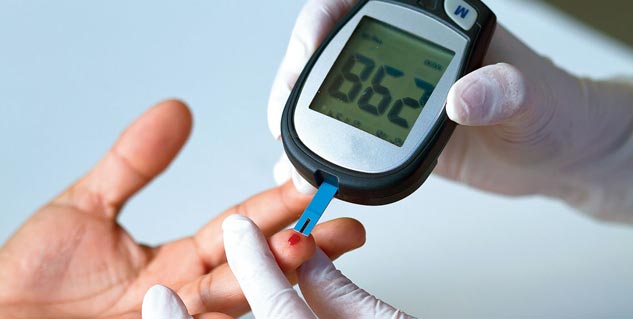
Having a family history of diabetes doesn't condemn you to it, however, it does increase your risk. Type 2 diabetes, especially, is strongly genetic. If a parent or sibling is affected, your risk increases dramatically. But lifestyle and early awareness can make a gigantic impact on whether or not you get the condition.
Table of Content:-
In an exclusive interaction with the editorial team of Onlymyhealth, our expert, Dr Bhumesh Tyagi, General Physician and Internal Medicine Specialist, Shardacare, Health City - Noida, explained seven things you need to know if diabetes runs in your family. Here is what he shared with us.
Things To Know and Control If Diabetes Runs In Your Family
Here are the top things to know and manage if diabetes is in your family:
1. Know Your Risk Factors
Aside from heredity, some lifestyle and health conditions raise the risk of developing diabetes. These are overweight, high blood pressure, high cholesterol, and physical inactivity. Age and ethnicity also contribute, individuals aged 40 and above and individuals of South Asian, African, or Hispanic descent are at higher risk.
2. Check Your Blood Sugar Regularly
Regular health check-ups are essential. Even when you're healthy, prediabetes can develop quietly. A fasting blood sugar or HbA1c test will pick up on early warning signs before full-blown diabetes develops. The sooner you find out, the sooner you can get in charge.

Also Read: Is Japanese Walking Better Than Traditional 10k Steps? Find Out Here
3. Make a Balanced Diet Your Top Priority
What you eat has the greatest impact on prevention. Pay attention to add these in your everyday diet:
- Whole grains over refined carbohydrates
- Abundant vegetables and fruits (low glycemic index such as berries and apples)
- Lean protein foods like fish, chicken, lentils, or beans
- Healthy fats from nuts, seeds, and olive oil
- Reduce sugary drinks, processed meals, and fried foods, as they cause a spike in blood sugar and raise insulin resistance.
4. Stay Physically Active
Exercise not only keeps one at a healthy weight but also enhances insulin sensitivity. Shoot for a minimum of 150 minutes of moderate activity each week, such as brisk walking, cycling, or swimming, along with strength training two times a week. Even small daily activities such as taking the stairs or walking after eating count.
5. Maintain a Healthy Weight
Excess abdominal fat is strongly linked to type 2 diabetes. Even losing 5–7% of body weight can dramatically lower your risk if you’re overweight. Small, consistent changes in diet and activity go a long way.
6. Manage Stress and Sleep
Chronic stress and poor sleep habits impact hormones that manage blood sugar. Learn relaxation methods like meditation, yoga, or deep breathing. Get seven to eight hours of good sleep each night to aid your metabolism.

7. Don't Ignore Early Warning Signs
Symptoms like frequent urination, thirst, fatigue, unusual weight loss, or blurred vision never go unnoticed. If you experience these, see a doctor as soon as possible.
Bottomline
A history of diabetes in your family puts you at risk, but not necessarily at a dead end. Since you can learn to influence the factors that count, diet, exercise, weight, stress, and frequent visits to your doctor, you can stall or even avert diabetes. Consider family history a wake-up call, not a death sentence.
Also watch this video
How we keep this article up to date:
We work with experts and keep a close eye on the latest in health and wellness. Whenever there is a new research or helpful information, we update our articles with accurate and useful advice.
Current Version
Sep 17, 2025 18:37 IST
Modified By : Tanya SrivastavaSep 17, 2025 18:37 IST
Published By : Chanchal Sengar